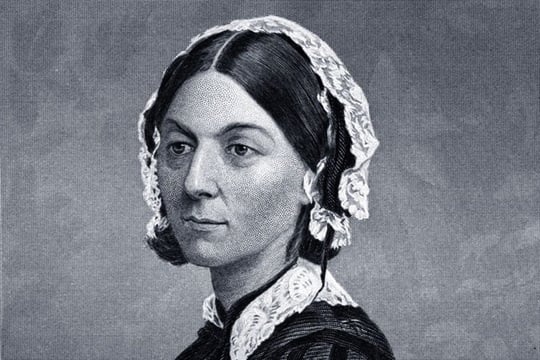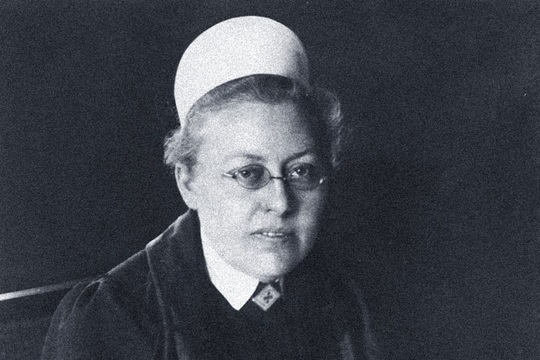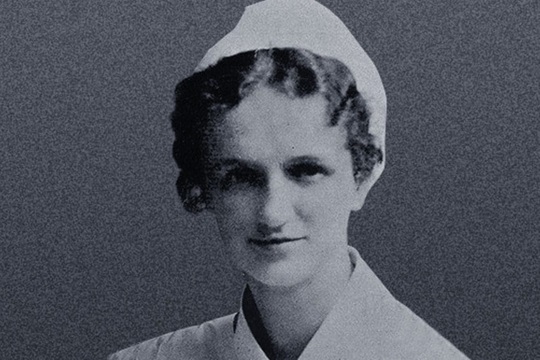In honour of International Women’s Day: A tribute to three female pioneers in the history of hygiene and nursing
March 8 is International Women’s Day. We celebrate the women we love, the women who mean the world to us, in our family, at work, in society, in history. Here at Sterillium®, we look back on a rich history of hygiene and nursing. And on the remarkable women who revolutionised and advanced this field. More than merely remembering, let’s celebrate these courageous pioneers and their achievements, which profoundly shape the world of healthcare to this day.


„Wise and humane management of the patient is the best safeguard against infection.“
Any story about groundbreaking women in nursing simply must begin with Florence Nightingale (1820–1910). In 1860, the daughter of an influential British family laid the groundwork for modern professional nursing by founding the first nursing school. But she had already demonstrated her dedication years earlier, when she followed the British Army to war in 1854. At the field hospital, she witnessed first hand the grave consequences of ongoing deplorable conditions: patients lying in their own excrements, contaminated drinking water, doctors in bloodstained coats going from patient to patient. She observed that more and more patients were dying of infections — far more than of war injuries. The rules Nightingale introduced may seem simple yet were novel for her times and were to save many lives: wash your hands, thoroughly air the room, practice cleanliness. After war ended, Nightingale developed a healthcare reform proposal that would not only raise the standards of hygiene — and with that improve nursing — but would also lay the foundation for making nursing a well-respected profession1.

"Who should advance our profession but us! We have no right to demand others do that for us."
In 1903, Agnes Karll (1868–1927) changed history when she founded the German Nurses Association, which was later named Agnes-Karll-Verband in her honour. Until then, there had neither been a clear definition of the nursing profession nor a standardised education, no regulated work hours let alone fixed rates for wages. At its inception, the association had 30 members. By 1912, it had already grown 3,200 members strong. The association accomplished better prevailing conditions for nurses as well as more respect for profession in general: Job placement, insurance coverage and legal counselling were among the many benefits members enjoyed. What’s more, Karll fought for a comprehensive three-year nursing education2.

"The profession of nursing is responsible for the effectiveness of the care and all its outcomes for the patient."
Hildegard Peplau (1909–1999), born in Pennsylvania in the early 20th century, is one of nursing’s best-known theorists. She coined the term „psychodynamic nursing,“ which focuses on the interpersonal relationship between nurse and patient. Her theory is the first to describe the nurse-patient relationship as a process. It focuses on understanding the patient on the medical as well as on the emotional level as way of treatment. Thus, patients can feel their best possible, even while ill or disabled. And healthcare professionals benefit from real-life learning experiences. This approach has earned Peplau the moniker „mother of psychiatric nursing“3.
Nearly 6 million professionals currently work in the German healthcare system. More than 75% of them are women4. They are our heroes. Day in and day out, they work endless hours caring for many patients at once, looking after their emotional wellbeing as well as providing the best-possible treatment for each individual patient. In adhering to required hygiene measures, they not only uphold today’s established standards but also honour the dedication of their historical predecessors. This day is for all of you. We thank you from the bottom of our heart.


Use disinfectants safely. Always read label and product information before use.
1https://www.aerzteblatt.de/archiv/213977/Florence-Nightingale-(1820-1910)-Hoehere-Tochter-in-medizinischer-Mission
1https://www.pharmazeutische-zeitung.de/ikone-der-pflege-117522/
2https://www.dbfk.de/de/ueber-uns/150ster-Geburtstag-Agnes-Karll.php
3https://www.dpv-online.de/pdf/agergeb/Peplau.pdf
4https://www.destatis.de/DE/Themen/Gesellschaft-Umwelt/Gesundheit/Gesundheitspersonal/_inhalt.html
1https://www.aerzteblatt.de/archiv/213977/Florence-Nightingale-(1820-1910)-Hoehere-Tochter-in-medizinischer-Mission
1https://www.pharmazeutische-zeitung.de/ikone-der-pflege-117522/
2https://www.dbfk.de/de/ueber-uns/150ster-Geburtstag-Agnes-Karll.php
3https://www.dpv-online.de/pdf/agergeb/Peplau.pdf
4https://www.destatis.de/DE/Themen/Gesellschaft-Umwelt/Gesundheit/Gesundheitspersonal/_inhalt.html
